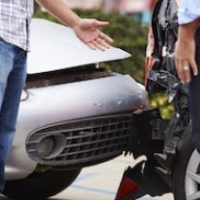Is Bad Weather a Defense to Negligent Driving?

Florida is known for having extreme weather. From heavy rain and tropical storms to devastating hurricanes, weather can take a turn for the worse very quickly in the Sunshine State. After an accident, negligent drivers often try to blame bad weather for their careless driving. What’s more, insurance companies seem to be equally willing to put the blame on bad weather.
If you’ve been injured by a reckless or distracted driver, don’t let the insurance companies get away with improper excuses like inclement weather. Call Roman & Roman, P.A. to get real help today.
Courts Don’t Instruct Juries on What is Unavoidable
First, when an insurance company or negligent driver claims that there was no negligence because of bad weather, what they are really saying is that the accident was unavoidable. While this may make sense in some situations, it’s an improper consideration. While Florida jury instruction 401.4 (Negligence) allows a defense attorney to argue this, it’s generally considered improper for a court to instruct a jury about what would constitute an unavoidable collision. This is because negligence depends on the specific circumstances.
Negligence Depends on the Circumstances
According to the same jury instructions, juries are instructed on the definition of negligence, which is simply the “failure to use reasonable care.” But the law goes one step further and defines “reasonable care” as what a reasonably careful person would do under the same circumstances. In other words, it’s a fact-specific instruction.
Why Bad Weather Defenses Should Fail
When an insurance company argues that bad weather was to blame, the defense usually falls apart upon further inquiry. For instance:
- Skids on Wet Pavement – Say the insurance company argues the defendant’s vehicle slid on wet pavement making the accident unavoidable. Did every vehicle on the road lose control and cause an accident that day? Not likely. Therefore, it only stands to reason that the individual was driving at rate of speed that was greater than what he or she could maintain control of the car. So under the circumstances, the driver was not using reasonable care.
- Poor Visibility – If a car rear ends you and the driver and insurance company claim that poor visibility due to rain or fog were to blame, then the real question is whether a reasonable driver under the same circumstances would continue driving at the same speed when he or she cannot see. Under the circumstances, this would be unreasonable and dangerous.
Understanding Your Rights
Insurance companies like to act as though they make the rules and they determine your rights. To be clear, they don’t. If you are not satisfied with what the insurance company is telling you, then you should contact an experienced personal injury attorney who can review the facts and help you pursue justice. Ultimately, it will be a jury that decides what is reasonable, not an insurance representative sitting in a cubicle a thousand miles away. The experienced team at Roman & Roman, P.A. have decades of experience fighting insurance companies. Give us a call to see if we can help you too.
Resource:
floridasupremecourt.org/civ_jury_instructions/instructions.shtml#401


